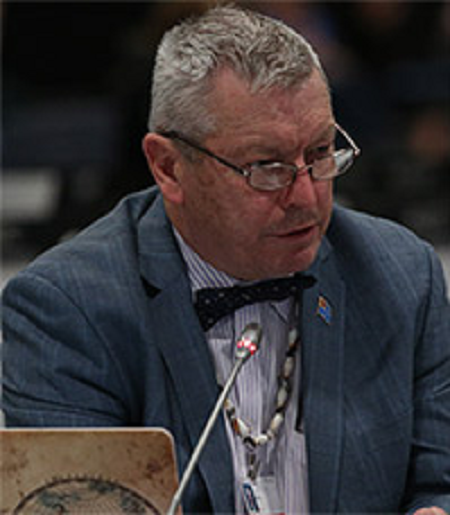Cautious Optimism: Human Rights & Climate Action

Can the UN Special Rapporteur on human rights in the context of climate change contribute to environmental and climate justice?
The report issued by the World Health Organization (WHO) this April raised an alarm by revealing that 90% of the world`s population breathes polluted air. The report presents more harsh facts, adding that 6 million people are dying due to polluted air around the world.
Various reports continue to discuss these facts. A separate report to the Intergovernmental Panel on Climate Change, which coincided with the WHO report, stated frankly and directly that we have exceeded the thresholds of pollution that may lead to devastation and imminent disasters on Earth. It added that the failure of countries to fulfill their obligations to reduce emissions quickly, deeply and directly before 2030 will be very costly for the environment and human beings. These next eight years are crucial, and waiting to take action anywhere will inevitably undermine remedial work and basic human rights in all parts of the world.
Today, it is no secret that natural and environmental manifestations directly affect people`s lives and may rise to the level of natural disasters due to climatic changes, such as droughts, floods, rising temperatures, rising sea levels and the loss of biodiversity.
The wealth of billionaires increased by over US$ 3.9 trillion between March and December 2020, while the impact of the pandemic has coincided with the first increase in poverty in over 21 years, with the number of extremely poor increasing from 119 and 224 million people.
All of these manifestations may be the beginning of what is expected to worsen during the next few years, in which millions of people may die, become homeless, experience illnesses directly caused by pollution, especially in the Global South, where poverty, low income and disease, low education rate, weak institutions, outdated technology and other inequalities and gaps between North and South persist. Given we are not witnessing much progress to avoid this deprivation, environmental violations will likely increase in severity and deepen everyone’s needs to sustain human life with dignity.
Hence, working within a prudent approach based on human rights and within clear commitments by states and governments to the human right to a healthy and sound environment in which to live in order to enjoy the rest of our human rights, is a goal, a means, a procedure and a struggle that all activists must work for and strive for daily.
The year 2021 was a significant year. After the COVID-19 pandemic, the world witnessed the importance and impact of global solidarity. Historic decisions were taken, including in the Human Rights Council, the most important of which was the explicit recognition of a safe, clean, healthy and sustainable environment as a human right, followed by a decision to appoint a Special Rapporteur for human rights in the context of climate change. The UN and ILO also have newly established a Global Accelerator to help ensure global financing to create 400 million jobs and extend social protection to 4 billion people currently without coverage.
With the encouragement of civil society, the Human Rights Council also has worked since 2008 to address the negative effects of climate change on human rights through its various mechanisms and activities. However, these have been fragmented actions here and there, despite the urgency of the global climate crisis and the frequency of its effects. The Council, as a political body, has been unable to comprehensively address the climate issue in human rights terms. Even the resolution recognizing a human right to the environment does not clarify the legal obligations of states, nor deliver effective support to the affected communities on the front lines of environmental destruction and climate change.
The measures taken to reduce environmental pollution, protect natural resources, and protect against climate change in the context of human rights may be somewhat slow, but any action taken is a great victory and a firm basis for us to work. Rogue capitalism has cast a dark shadow over everything around us, obscuring the human rights of current societies and future generations.
We welcome the appointment of Dr. Ian Frye (Tuvalu) as the new Special Rapporteur on human rights and climate change. Dr. Fry brings long-standing expertise as a climate negotiator for the Pacific Island States within the United Nations Framework Convention on Climate Change (UNFCCC), with a record of supporting human rights-based approaches to climate action, contributing to more equitable and ambitious climate action and playing a leading role in protecting communities from the impacts of harmful carbon trading mechanisms. He brings a Small Island Developing State perspective on the heightened risks faced by the world’s most-vulnerable communities, which are also the least responsible for the climate emergency and seek climate justice
Nonetheless, the decisions of 2021 do strengthen the Council’s role in addressing climate change, protecting people from its negative effects, and promoting respect for and protection of human rights in the context of climate responses toward climate justice and equity.
Image on front page: Logo commemorating Earth Day m2022. Source: Dibeen Association for Environmental Development. Photo on this page: Dr. Ian Frye, the newly appointed Special Rapporteur on human rights in the context of climate change.
|